Belt and Road
Your Present Location: PROGRAMS> Belt and RoadSuggestions put forward by think tank for digitalizing the silk road
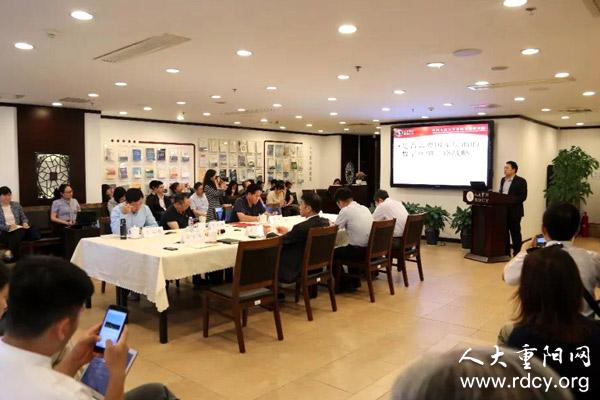
On the 27th afternoon, hosted by Chongyang Institute for Financial Studies at Renmin University of China (RDCY), a report releasing ceremony as well as the seminar on progress, challenges and practical schemes of the digitalized silk road was held in the RDCY. Wang Wen, Executive dean of RDCY, made an introductory speech and research fellow of the RDCY Liu Yushu made an illustration. Jia Jinjing, Assistant Dean of the RDCY, chaired this conference.
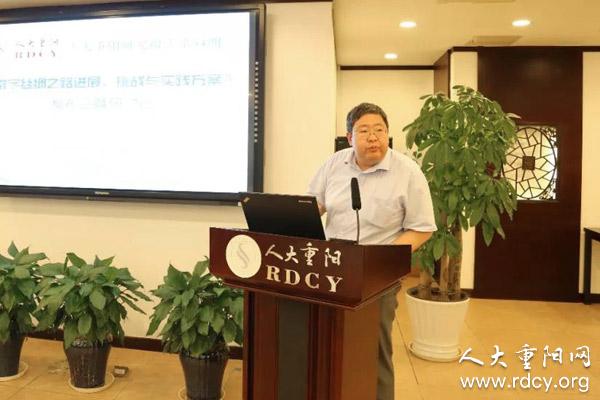
Jia Jinjing
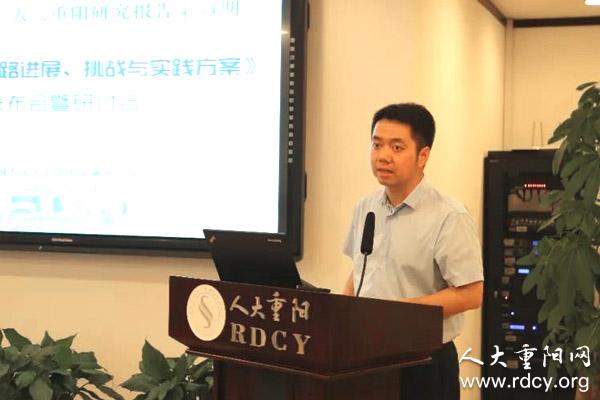
Wang Wen
Wang Wen noted that the human history has undergone four rounds of development changes in the past three or four centuries. Three technological revolutions of mechanization, electric power and Internet aim to liberate people from heavy work and boost the industry. However, about fourteen years ago, human embraced the era of digitalization and modernization with the liberation of their brains. We could say that it was just a beginning for intelligent era to impact us. In a word, it is a process of brain liberation. People don’t need to rely on brains to take control but resort to technological meas. Such change gives rise to tremendous convenience and efficiency. But it has a long way to go for our lives are to become more modernized and digitalized.
China initiates the BRI project and will encounter many bumps and challenges of technology. Amid this background, it is inevitable for China to focus on digitalization to fuel its BRI. We timely delivered reports on digitalized silk road from the perspective of think tanks. That responses to the industrial revolution and decision-making elites, he said.
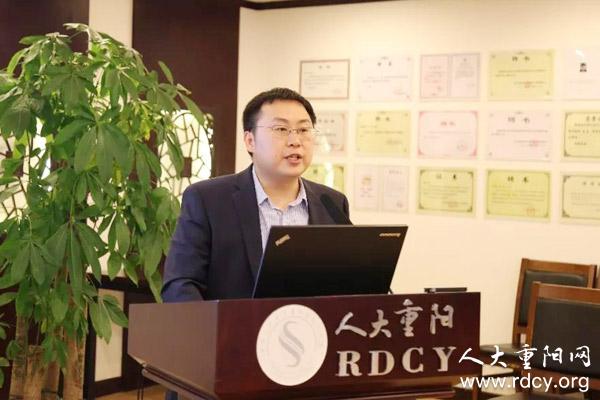
Liu Yushu
Liu Yushu, research fellow of RDCY made a simple introduction of information about progress, challenges and practice schemes in digitalized silk road. He also illustrated on the five core problems:
First, is it whether China needs national strategies to develop digitalized or not? Liu said that BRI is a large-scale project. We shouldn’t allow others to make negative comments arbitrarily that may hurt our current construction of digitalized silk road. Taking international environment into consideration, digitalized silk road featuring openness, inclusiveness and transparency is more beneficial for China to cooperate with other countries.
Second, what is the road like? Liu argued that three characteristics included are information infrastructure, electronic commerce and smart cities. They contribute to core elements of our digitalized silk road. The biggest volume is construction of information infrastructure. Our country’s enterprises have provided high-quality but low prices services for other nations.
Third, why do we accelerate the construction of digitalized silk road? Liu pointed that China’s booming AI technology serves as a condition but it still has some shortcomings. Li Kaifu once told that data is the oil for the intelligent times. The development of AI needs to be underpinned by numerous data, which makes the transformation of AI and digitalization hinge on data dive to the largest extent. Therefore, it is of great significance for China to strengthen connectivity of digitalized silk road, especially propel the common progress with other developing countries.
Fourth, how can we speed up the construction? Liu said that there exist obvious digital gaps among countries along the route. Not all countries enjoy complete infrastructure, and our strong capability can help solve their problems and drive their facility construction, which can also fully expand foreign demands in the development of silk road. As Internet keeps changing, countries along the route develops better than those other countries. Currently, the growth speed of Internet user is slowing but time of personal use is longer. Under such circumstances, there exists a new trend when the Internet keeps expanding. The international Internet of things go faster. We perform well in this regard. The advantage serves as a key opportunity for us to develop digitalized silk road because the internet of things shares a close connection with people. It is a course of silent and complete digitalization. Therefore, the digitalized silk road is promising in prospect. At present, we should call for the government to formulate transparent and united plans in BRI and digitalized silk road. The development and balance of enterprises and sub-national regions should be considered.
Fifth, the BRI has entered a new stage. We will encounter many problems when making research. From the viewpoint of research, it is a little hard to collect data because it develops too fast. Our choices will directly influence the result of research. This is the point where we should pay attention to. Indepth research have huge changes and impacts on our country. The reform and opening-up policy decides the future of BRI as they are connected closely.
After delivering the report, Qin An, Director of Cyberspace Strategy Institute of China, Wu Zhifeng, Head of Strategic Institute of State Development Bank, Zhou Luohua, Associate Dean of RDCY, and Wang Yiwei, Professor of School of International Studies, carried out a discussion about the digitalized silk road. Experts exchanged their ideals in terms of the road position, connotations of digitalized economy, digitalized human rights and importance.
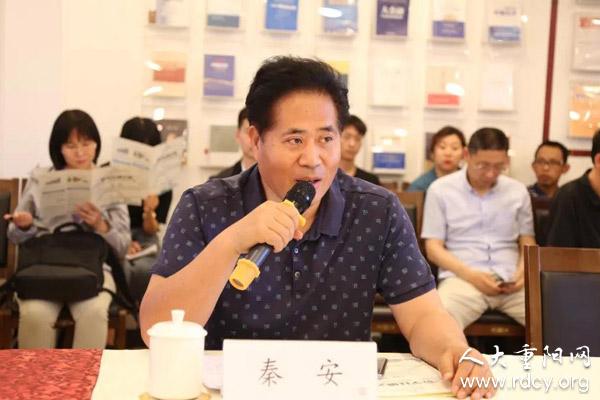
Qin An
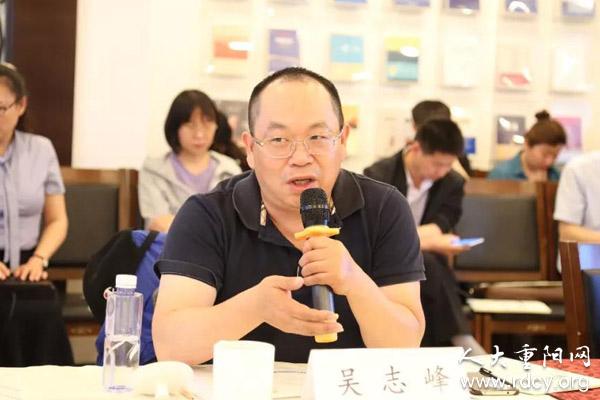
Wu Zhifeng

Zhou Luohua
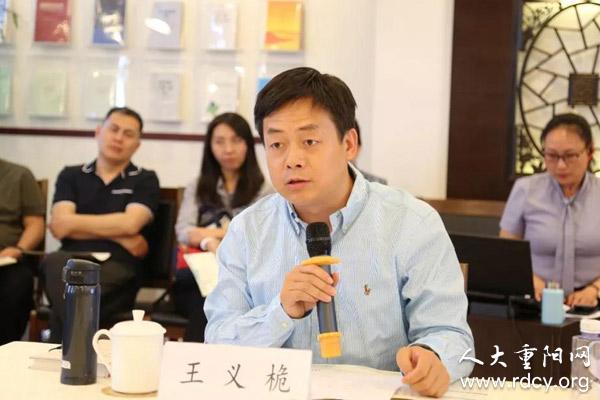
Wang Yiwei























































































 京公网安备 11010802037854号
京公网安备 11010802037854号





